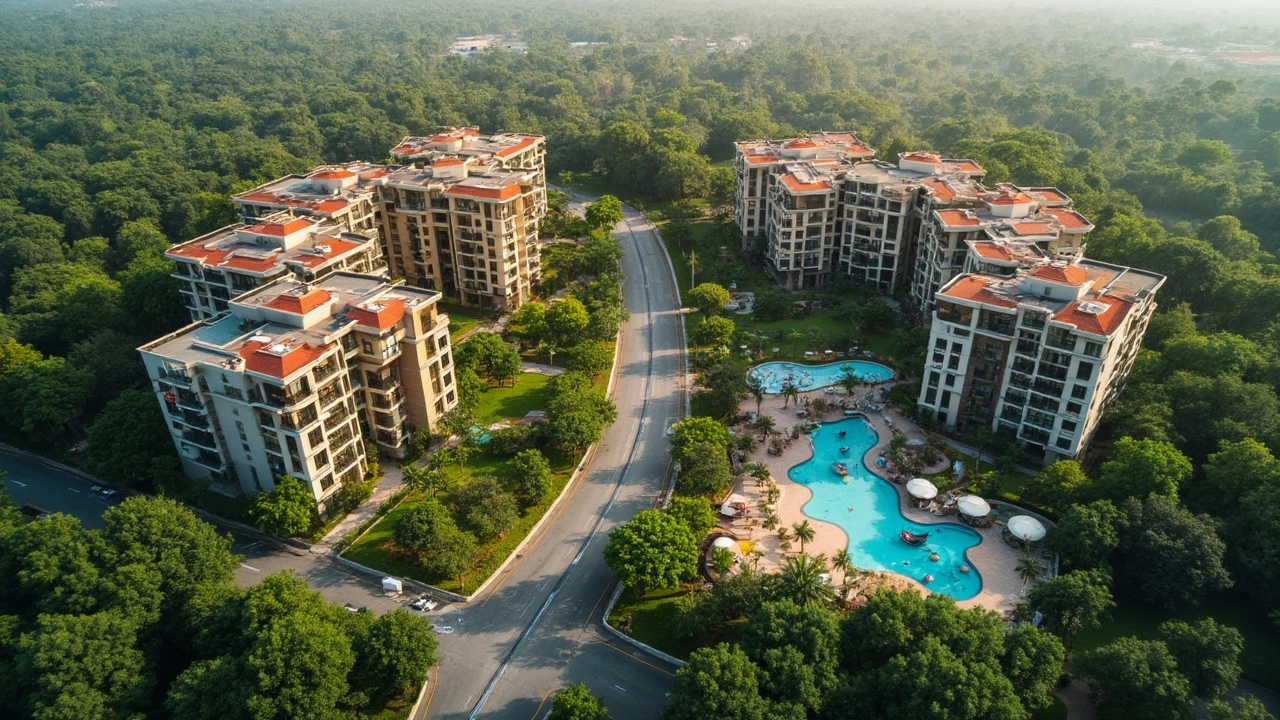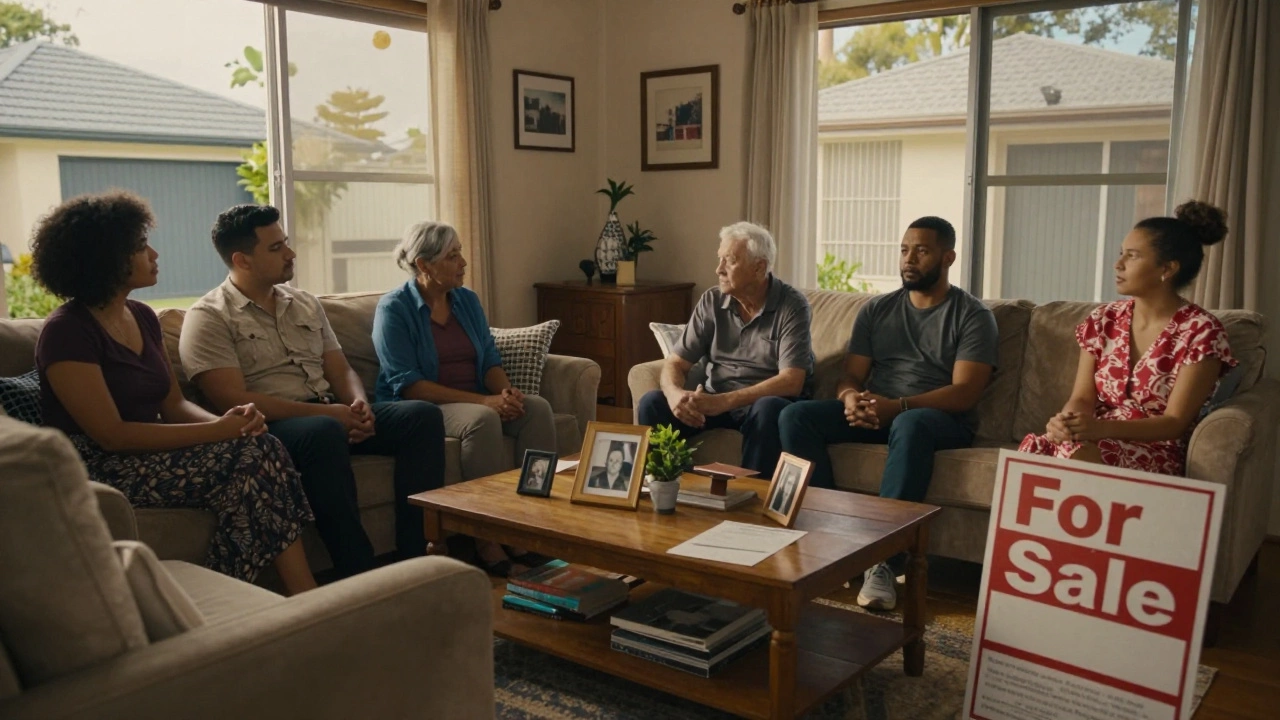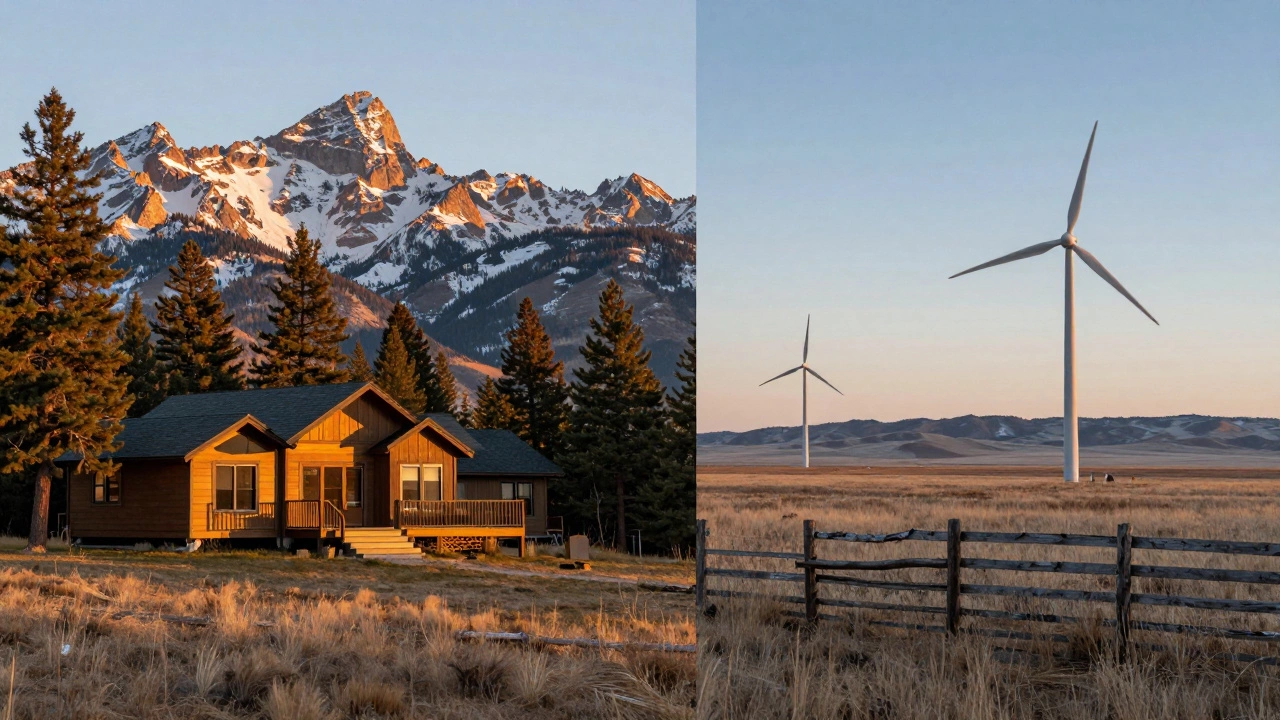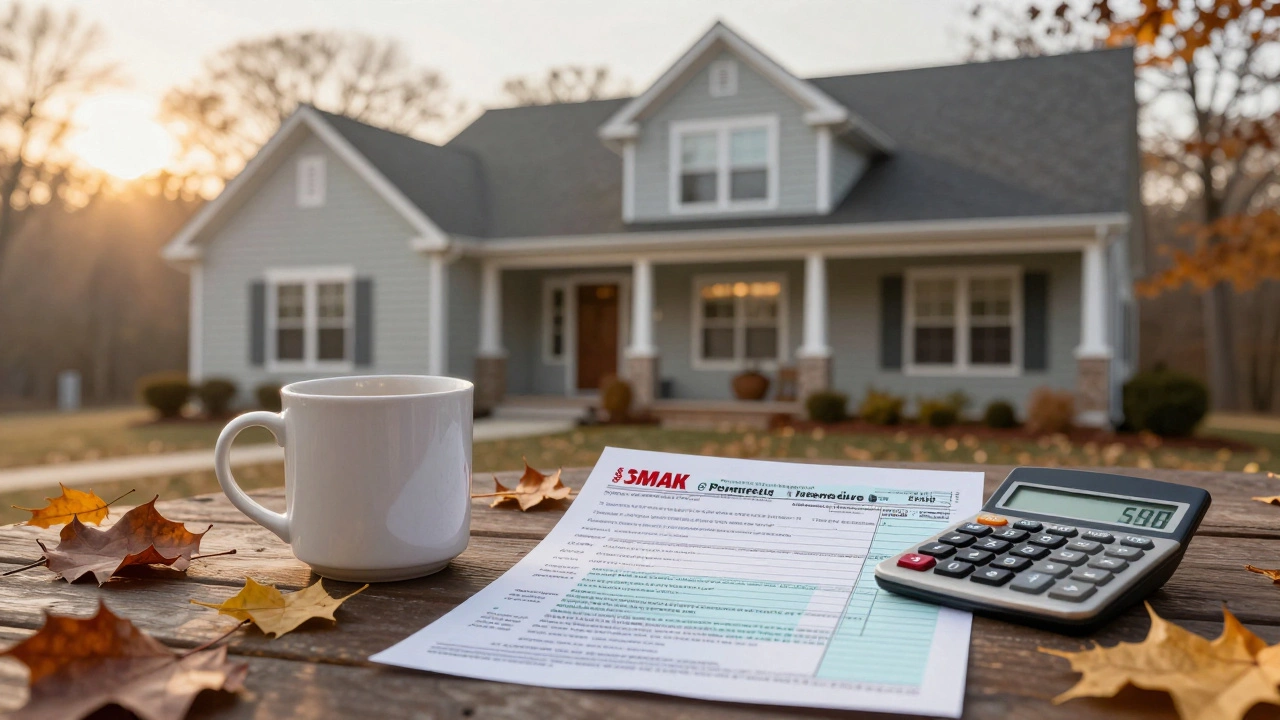If you’ve looked at real estate listings lately, you’ve probably spotted a big difference between condo and house prices. No, your eyes aren’t playing tricks on you. Condos really do cost less than houses, and it’s not just about fewer rooms or less floor space.
Here's the everyday truth: owning a condo usually means you’re buying the space between four walls (plus maybe a parking spot or balcony), but not the land underneath. With a house, you’re getting the building and the land—often a chunk of backyard or garden space. Land is expensive. So, naturally, condos get a price cut because that prime patch of dirt isn't part of the package.
This gap in price isn’t just about ownership structure. There are lots of small details that add up, and if you don’t know how condos work, it’s easy to miss them. Let’s break down what really drives the cost difference before you start scrolling for the next cool villa for sale.
- Land Ownership and Space
- Amenities and Shared Facilities
- Monthly Maintenance and Fees
- Location and Demand
- When Condos Make Sense
Land Ownership and Space
This is the big one—land ownership is a game changer when you're comparing condos and houses. When you buy a house, you’re not just buying four walls and a roof. You’re getting the entire property, which usually means a patch of land with a yard, a driveway, and sometimes even extra space for gardening or entertaining. Land is expensive, especially in or near cities, and that’s a huge reason houses cost more.
On the other hand, when you get a condo, you’re mostly buying the inside of your unit. The exterior walls, roof, common lawns, and shared spaces are collectively owned by everyone in the building through the homeowners’ association (HOA). That means your name isn’t on a specific piece of earth outside your window. And since the cost of land is shared among dozens (sometimes hundreds) of unit owners, the price per person drops way down.
Let’s look at some numbers to put this into perspective:
| Type | What You Own | Typical Lot Size | Average Price in 2024 (Urban Area) |
|---|---|---|---|
| Condo | Interior Unit Only | N/A (shared land) | $350,000 |
| House | Building + Land | 2,500 sq ft (or more) | $650,000 |
That price difference mostly boils down to the value of the land. The more land you own (especially in popular neighborhoods), the higher your price. For condos, since the land doesn't show up on your title, the upfront cost drops dramatically.
Here’s a quick rundown of why it matters:
- With a house, you can landscape, build extensions, or install a pool—freedom comes with a price tag.
- Condos limit you to interior renovations, so your creative spark stays inside.
- Houses usually offer more privacy and outdoor space, which many families want—but again, that’s baked into the higher price.
- Condos focus on efficient use of shared land, making them fit more people into less area—and that keeps individual units cheaper.
If your dream is to own the lawn, swing set, and veggie patch, a condo might leave you wanting. If you're happy with just your living space, and maybe a killer city view, the lower cost of a condo makes a lot of sense.
Amenities and Shared Facilities
One thing that stands out in condos is the list of amenities you get access to. Pools, gyms, security, play areas, maybe even a common lounge or a rooftop garden. It all sounds great—until you realize you’re sharing these perks with the rest of the building’s residents.
This shared setup slashes costs for each unit owner. In a house, if you want a pool or a 24/7 doorman, you’ll pay for it all yourself, either upfront or in maintenance. With condos, these costs get split among everyone. It’s why the overall property price drops, but you might pick up some costs in the monthly fees.
Here’s a quick rundown of common condo facilities versus what you usually find with a standalone house:
| Feature | Condos | Houses |
|---|---|---|
| Swimming Pool | Usually shared and included | Private, costly to install/maintain |
| Fitness Center | Shared gym access | On homeowner to set up |
| Security | Central security, cameras, guards | You hire/pay yourself |
| Outdoor Space | Shared gardens/terraces | Private lawn or yard |
| Maintenance | Handled by building, shared payment | Your responsibility and cost |
When these features are shared, the expense isn’t just divided—it’s often managed better, since big buildings can negotiate bulk maintenance deals. For example, hiring a cleaner or gardener is much more expensive when you’re the only owner chipping in. With condos, you benefit from economies of scale.
So, the next time you see those low upfront prices, remember: it’s not just about square footage. The shared model really does help keep purchase prices in check, even if it means giving up a bit of privacy.

Monthly Maintenance and Fees
Every condo owner has to pay a monthly fee. This isn’t some sneaky hidden cost—these fees keep the building running. They cover stuff like cleaning, security, landscaping, elevator repair, and fixing the swimming pool if it breaks. Everybody chips in, so you’re not personally on the hook for every lightbulb in the hallway or a busted roof.
Compare that to owning a house. If the pipes burst or the roof leaks, it’s all on you. You hire the repairman, buy the parts, and keep up the yard. With a condo, the heavy lifting is usually shared, which makes budgeting easier but also means you’re tied into paying these condo fees as long as you own the place.
The amount you pay depends on the condo’s size, the building’s age, and how many bells and whistles the place has. On average, fees usually range from $200 to $600 a month, but luxury condos or those with swanky pools, gyms, and 24/7 doormen can push it up to $1,000 a month or more. Here’s a quick look at the typical fees:
| Type of Condo | Average Monthly Fee (USD) |
|---|---|
| Standard (basic amenities) | $200–$400 |
| Mid-range (pool, gym, parking) | $400–$600 |
| Luxury (concierge, rooftop, club) | $800–$1,200 |
Here’s the real kicker: while these payments can seem steep, you don’t have to sweat random big bills. You know exactly what you’re paying each month, and there’s a comfort in that. If you’re looking at the total picture, sometimes these fees balance out with what house owners pay for repairs and lawn care—they just pay in chunks instead of a steady monthly cost.
- If you hate unpredictable repair bills, condos might feel less risky.
- If you skip paying attention, these fees can be a budget-buster over time.
And here’s the condos trick: always check if the fee includes extras like heat, water, or internet. Some do, some don’t. So ask before you sign anything.
Location and Demand
It might surprise some folks, but condos are often smack in the middle of the action—think downtown, close to mass transit, cafes, and offices. Houses, on the other hand, are usually further out where land is cheaper and there’s more space for yards and driveways. This alone explains a big part of the price tag difference.
Here’s the twist: even when condos are in prime spots, they’re still cheaper per unit than houses in the same neighborhood. Why? High-rise buildings can fit dozens or even hundreds of owners onto a single piece of land, spreading out the cost. Developers can sell smaller spaces for less, scooping up a big crowd of buyers who want location minus the full package of a house.
Demand plays a weird role too. Yes, more people want to live close to work or nightlife, but a lot of buyers—especially families—still dream about a home with a backyard, meaning houses keep their value thanks to limited supply and old-fashioned demand.
| Average Price (2025) | Downtown Condo | Detached House |
|---|---|---|
| Toronto | $730,000 | $1,350,000 |
| Vancouver | $800,000 | $1,650,000 |
| Chicago | $380,000 | $555,000 |
Wondering how this impacts your wallet? For young professionals, students, or downsizers, snagging a condo close to work can save a ton of commute time and cash. But if you need more breathing room and privacy, you’ll need a bigger budget for a house—even if it’s miles out from the city buzz.
Tip: If you’re flexible about space and value convenience, a condo in a central spot often beats a house in the suburbs when it comes to everyday living and resale potential. But don’t skip the math: always consider how local demand can swing the numbers before putting an offer down.

When Condos Make Sense
Condos aren’t for everyone, but they can be a perfect fit in certain situations. If you want a place with less hassle and lower upfront costs, it’s worth a serious look.
This is especially true if:
- You don’t want to mow lawns or deal with outside maintenance—most condos take care of it all for you.
- You prefer to live in city centers. Condos tend to crowd into prime urban spots where single-family houses just don’t exist. Convenience to work, shopping, or nightlife? Tick.
- You travel often or just don’t want to worry about home security—locked doors and a building community give some peace of mind.
- First-time buyer? Stats from 2023 show that nearly 28% of first-time homebuyers in major cities went the condo route to get started on the property ladder.
- Downsizing after retirement is on your mind. You can swap yard work for a gym, pool, or social room just an elevator ride away.
To help you quickly compare condo living with house ownership, check this table out:
| Condo | House |
|---|---|
| Lower upfront price | Usually higher price |
| Shared amenities (gym, pool, security) | May need to add your own |
| Less upkeep—maintenance handled by association | All upkeep is your responsibility |
| Monthly maintenance fees | No set fees, but unpredictable repair costs |
| Often closer to downtown or transit | Usually suburban or outside city center |
If you’re single or part of a small household, and care more about location and lifestyle than having your own patch of green, a condo could be your best move. But always keep an eye on those monthly fees—they add up quick and sometimes erase that price advantage.





